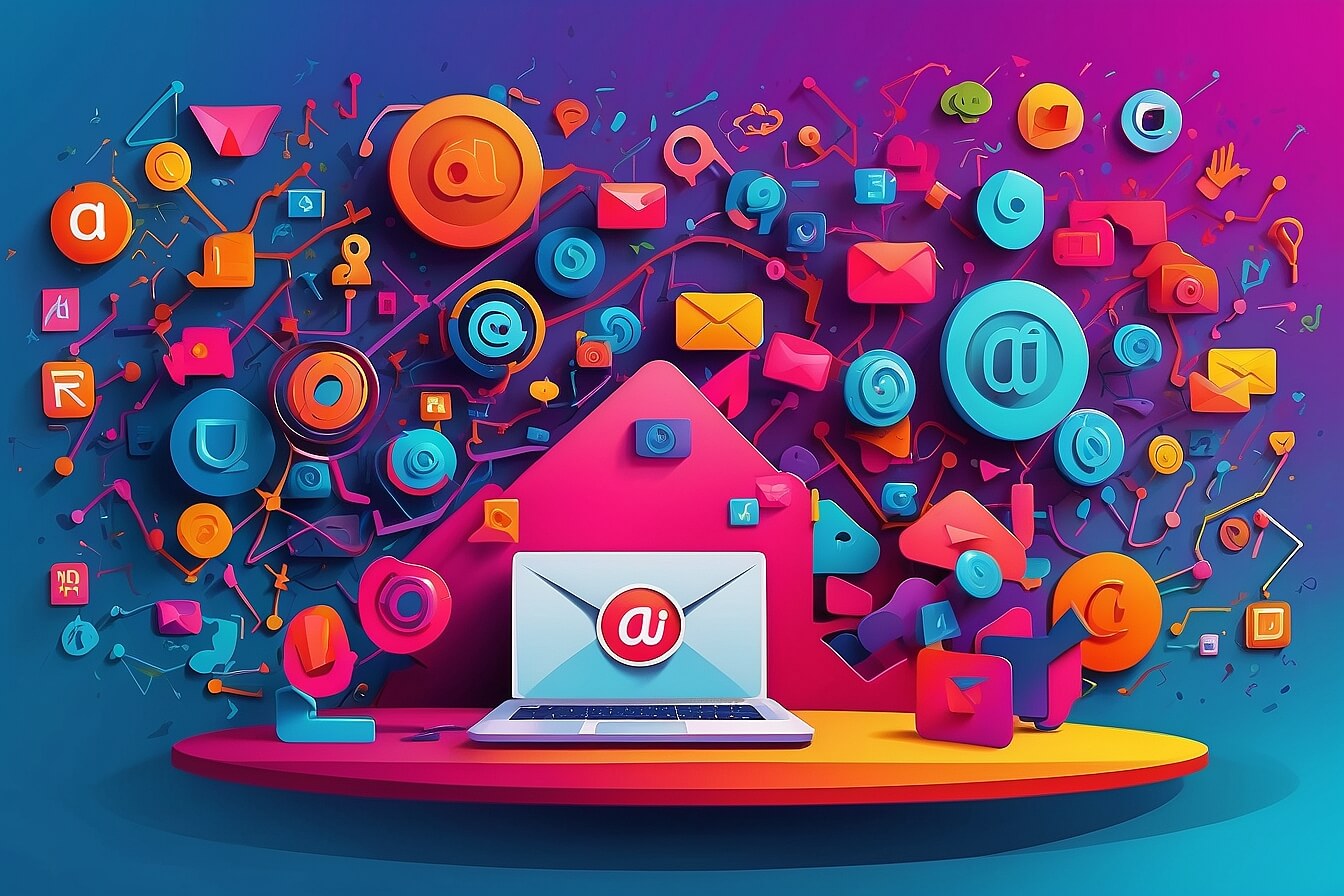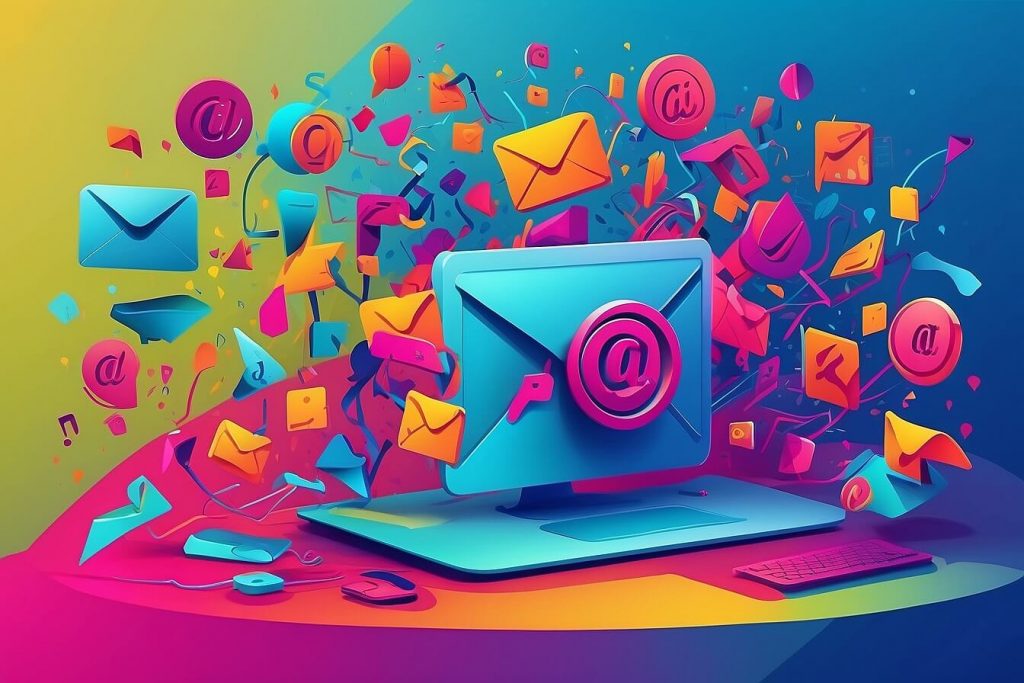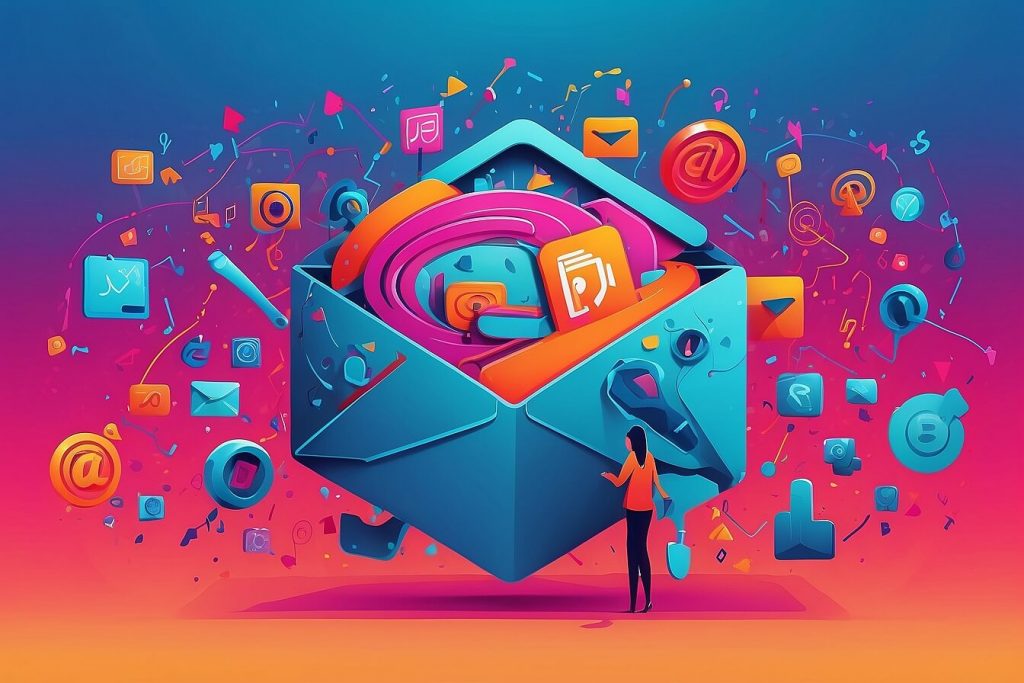The Evolution of Customer Support: Leveraging Chatbots and AI in Email Communication
Customer support has come a long way in recent years, with the advent of chatbots and AI revolutionizing the way companies handle email communication. These innovative technologies have allowed businesses to streamline their support processes, enhancing efficiency and improving the overall customer experience. By leveraging chatbots and AI in email communication, companies are able to provide quick, accurate, and personalized responses to customer queries, ensuring a more seamless and efficient support journey.
One of the key benefits of implementing chatbots and AI in email support is the ability to handle a large volume of customer inquiries simultaneously. Unlike human agents, chatbots and AI systems are not limited by time or capacity. They can handle multiple conversations at once, ensuring that customers do not have to wait for extended periods to receive a response. This not only improves customer satisfaction but also increases the efficiency of support teams, allowing them to handle a higher volume of inquiries without the need for additional staff. Additionally, chatbots and AI systems can be programmed to provide instant responses based on predefined rules, reducing the need for manual intervention and saving valuable time for both customers and support teams.
Improving Efficiency: How Chatbots and AI Streamline Email Customer Support
In today’s fast-paced business environment, improving efficiency is a top priority for companies of all sizes. This is particularly true when it comes to customer support, where timely and accurate communication is essential. Chatbots and AI have emerged as game-changers in the realm of email customer support by streamlining processes and enhancing overall efficiency.
One of the key ways in which chatbots and AI enhance efficiency in email customer support is by automating repetitive tasks and providing quick responses to frequently asked questions. By utilizing natural language processing algorithms, these intelligent systems are able to understand and interpret customer inquiries, providing accurate and relevant information in real-time. This not only eliminates the need for customers to wait for human agents to respond, but also frees up valuable time for support teams to focus on more complex and high-priority issues. As a result, response times are significantly reduced, and customer satisfaction levels are given a substantial boost.
Enhancing Customer Experience: The Benefits of Chatbots and AI in Email Support
One of the key ways in which chatbots and AI enhance customer experience in email support is by providing quick and accurate responses. Unlike human agents who may take time to search for information or consult colleagues before responding, chatbots and AI are able to instantly access a vast amount of data and provide relevant information to customers. This not only saves time for both customers and support teams, but also ensures that customers receive accurate and consistent answers to their queries.
Another benefit of chatbots and AI in email support is their ability to provide round-the-clock assistance. Many customers expect instant responses to their inquiries, regardless of the time of day. With the help of chatbots and AI, support teams can offer 24/7 availability, ensuring that customers receive timely assistance even outside of business hours. This eliminates the frustration of waiting for a response and enhances the overall customer experience.
Understanding the Role of Natural Language Processing in Email Customer Support
Natural Language Processing (NLP) plays a pivotal role in email customer support, revolutionizing the way businesses communicate with their customers. By using advanced algorithms and techniques, NLP enables chatbots and AI systems to understand and interpret human language, making it possible for them to respond accurately and effectively to customer inquiries. This sophisticated technology has significantly enhanced the efficiency and accuracy of email communication, reducing the response time and ensuring a streamlined experience for both customers and support teams.
One of the key advantages of NLP in email customer support is its ability to analyze and comprehend the intent and context of customer messages. By analyzing the text’s structure, grammar, and vocabulary, NLP algorithms can extract valuable information from customer emails, enabling chatbots and AI systems to provide relevant and personalized responses. Additionally, NLP allows for sentiment analysis, which helps support teams gauge the customer’s satisfaction level and tailor their responses accordingly. With NLP, businesses can ensure that their email support meets the unique needs of each customer, enhancing their overall experience and satisfaction.
Personalizing the Customer Journey: Utilizing Chatbots and AI in Email Support
Personalizing the customer journey is crucial for businesses in today’s highly competitive market. By leveraging chatbots and AI technology in email support, companies can create a more tailored and customized experience for their customers. Unlike traditional email support, where responses are often generic and impersonal, chatbots powered by AI can analyze customer data to provide relevant and personalized recommendations and solutions. This not only saves time and effort for both the customer and the support team but also enhances the overall customer experience.
With chatbots and AI, businesses can gather and analyze vast amounts of customer data, such as purchase history, browsing behavior, and preferences. By understanding individual customer needs and preferences, companies can offer more targeted product suggestions, discounts, and promotions through email support. This level of personalization not only strengthens customer loyalty but also increases the likelihood of repeat purchases. In addition, personalized email support provided by chatbots and AI can make customers feel valued and understood, which ultimately leads to higher customer satisfaction levels.
Overcoming Language Barriers: How Chatbots and AI Can Facilitate Multilingual Email Support
Chatbots and AI have revolutionized the way customer support is provided, and they continue to break down barriers in communication. One significant challenge that businesses face is overcoming language barriers in email customer support. This is where chatbots and AI can play a crucial role in facilitating multilingual email support.
With the help of natural language processing (NLP) algorithms, chatbots can understand and respond to emails in different languages. By analyzing the text and context, these intelligent systems can provide accurate and timely responses, regardless of the language used by the customer. This eliminates the need for human agents who may be limited in their language capabilities. Additionally, chatbots can be programmed to detect the preferred language of the customer and automatically switch to that language for a more personalized experience. Overall, leveraging chatbots and AI in multilingual email support not only enhances customer satisfaction but also streamlines the support process for businesses.
Ensuring Data Security: The Importance of Chatbots and AI in Email Customer Support
In today’s digital landscape, data security is a paramount concern for businesses and customers alike. With the increasing reliance on email communication for customer support, it is crucial to ensure the confidentiality and protection of sensitive information. This is where chatbots and AI play a significant role.
Chatbots and AI systems are equipped with advanced security features that can safeguard customer data during email interactions. These technologies utilize encryption protocols to secure the data transmitted between the customer and the support team. Additionally, they can detect and block potential phishing attempts or malicious links, preventing any unauthorized access to confidential information. By implementing chatbots and AI in email customer support, businesses can establish a secure environment that instills trust and confidence in their customers.
Optimizing Resources: How Chatbots and AI Reduce Workload for Email Support Teams
Chatbots and AI have revolutionized the way email support teams handle customer inquiries and reduce their workload. With the implementation of chatbots and AI, businesses can now provide instant responses to customer emails, eliminating the need for manual labor and long response times. By automating the initial stages of email communication, chatbots and AI algorithms can efficiently categorize and prioritize customer inquiries, ensuring that support teams address urgent matters first. This not only saves time and resources but also helps in maintaining consistently high-quality customer service.
Furthermore, the use of chatbots and AI in email support teams allows for round-the-clock customer assistance. Unlike human agents who need rest and cannot be available at all times, chatbots and AI algorithms can provide instant responses 24/7. This significantly improves customer satisfaction as customers receive timely support regardless of the time of day or night. By optimizing resources in this way, businesses can ensure that their email support teams focus on more complex and higher-value tasks, such as addressing specific customer concerns that require a human touch, thus improving overall efficiency and productivity.
The Future of Customer Support: Exploring the Potential of Chatbots and AI in Email Assistance
Advancements in technology have revolutionized the way customer support is provided, and chatbots and AI are at the forefront of this transformation. With the potential to streamline email assistance, these intelligent systems offer countless benefits for both customers and businesses. Chatbots can automatically process and respond to customer queries, significantly reducing response times and improving efficiency. AI algorithms can analyze large volumes of data to generate personalized responses, creating a more tailored and satisfactory customer experience. As the future of customer support unfolds, the potential of chatbots and AI in email assistance is vast and promising.
One of the key advantages of chatbots and AI in email assistance is their ability to handle multilingual customer support. Language barriers can often hinder effective communication, but with the implementation of intelligent systems, this obstacle can be easily overcome. Chatbots equipped with natural language processing capabilities can decipher and respond to emails in multiple languages, ensuring that customer inquiries are promptly addressed regardless of the language used. This not only enhances the customer experience but also expands businesses’ reach to a global audience. With the potential to provide efficient and multilingual support, chatbots and AI are undeniably shaping the future of customer support in email assistance.
Best Practices for Implementing Chatbots and AI in Email Customer Support
When implementing chatbots and AI in email customer support, there are several best practices to consider. Firstly, it is important to design chatbots that possess a strong understanding of natural language processing. This enables them to comprehend and interpret customer queries accurately, leading to efficient and effective responses. Additionally, chatbots should be programmed to personalize the customer journey by leveraging available data to provide tailored recommendations or solutions.
Furthermore, it is crucial to ensure that chatbots and AI systems are equipped with robust data security measures. This involves implementing encryption protocols and regularly updating security protocols to mitigate potential cyber threats. By safeguarding customer data, businesses can establish trust and confidence in their email customer support services. Lastly, organizations should regularly evaluate and optimize the performance of chatbots and AI systems based on customer feedback and evolving customer needs. This continuous improvement process allows for enhanced functionality and overall customer satisfaction.




